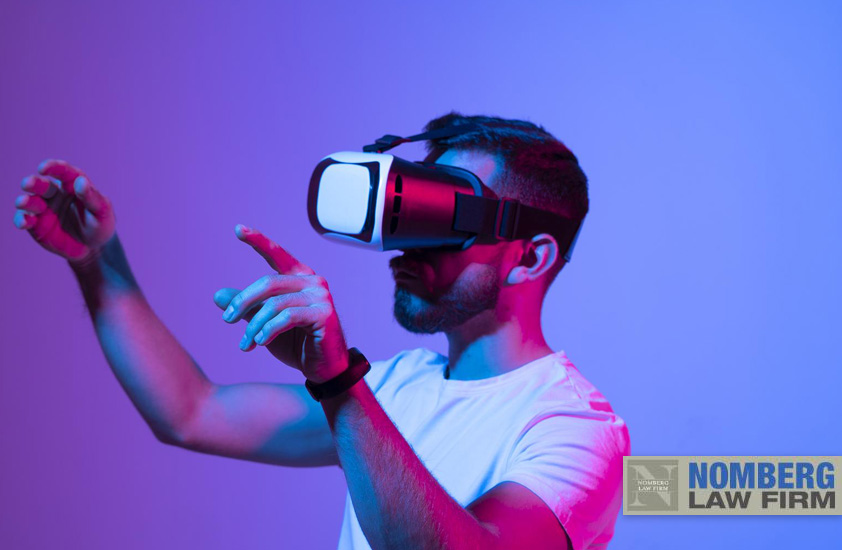The working world is an ever-evolving landscape.
While brick and mortar offices will likely never go away completely, working remotely or virtually are here now and coming on strong. During the pandemic, the remote workplace became much more the norm for many reasons. Just about any business you can think of (except maybe healthcare and food services) now have some version of remote working.
What has also evolved during the last several years is the virtual workspace—also known as the “metaverse.”
What is the metaverse?
Remember the 1960s animated Hanna-Barbera show, The Jetsons?
Such a cool concept that was decades ahead of its day.
The Jestons’ world was a precursor to the birth of the metaverse. People and dogs flying around in a virtual world, communicating on screens and meeting up in all types of novel places.
Alternatively, remember the SimCity video series where you build your virtual world?
The metaverse is something like that.
The metaverse is a persistent virtual world where people can work, play and shop from anywhere using a virtual reality headset, augmented reality glasses, a phone or any other compatible device1. These virtual spaces allow you to create and explore with other people who are not in the same physical space as you. In the metaverse, you will theoretically be able to hang out with friends, work, play, learn, shop, create and more2.
Early legal claims in the metaverse
Increasingly, more and more segments of society and the working world are headed to the metaverse. Banking giants, Visa, Facebook and many other leading companies are already doing business in the metaverse. There is even one New Jersey law firm that has a metaverse personal injury law office!
By doing business in the metaverse, it will naturally lead to employees conducting business there, and as a result, legal claims will surely arise. There are many employment-related laws yet to be decided or even addressed in this field.
It seems that so far no one has decided what legal framework should apply to a decentralized digital workspace in which workers may be physically or geographically disconnected from each other and the company they work for.
For instance, claims have already been reported dealing with sexual harassment, sexual abuse and racist abuse3. These claims are just beginning. Unfortunately, the metaverse is the wild west right now as everything is new to those jumping into the space.
How can there be work comp claims in a virtual workplace?
Excellent question — one we’ve been pondering as well.
Typically, there are 2 types of workers’ comp injury claims: physical and mental. While this article will not be able to address all questions concerning this topic, we will do our best here to point out what we believe will be those types of claims.
Physical injuries in the metaverse workplace
When a person is working virtually in the metaverse, they are likely wearing virtual headsets or glasses. We cannot foresee virtual “physical” injuries being compensable, but if this does become reality, we will be the first to report back here. For now, we will concentrate on actual physical injuries to the injured employee.
If a person working from home or a remote location has an accident or trauma while wearing the headset or glasses and this causes a physical injury, they might have a worker’s comp claim to pursue. For example, vision or hearing loss, or other physical injuries could be actionable claims. Additionally, there could be a third party claim against the manufacturer of the headset or glasses if the device malfunctioned causing injury.
Of course, the injured party would still need to prove legal and medical causation for a successful claim. Another consideration for these claims are venue and jurisdiction. Those issues might be determined by the physical location of the employment at the time of the accident. However, there are also virtual world or internet jurisdiction considerations yet to be addressed.
While more employees are working remotely than ever before, proving an on the job accident will still require the injured worker to prove that the accident occurred in the course of and arose out of the employment, regardless of the location of the work accident.
Mental injuries in a virtual workplace
Many states, including our home state of Alabama, don’t recognize mental injury claims without a physical injury claim. Several progressive states do allow for mental only work comp claims.
Just like in the physical world, witnessing certain traumas while on the job could be actionable. Post-traumatic stress disorder (PTSD), depression, anxiety and other related mental claims might be actionable in those states for a metaverse workplace claim.
The future of workers’ compensation and virtual workspaces
Stay tuned for more on this topic in the upcoming months!
In the meantime, if you are hurt on the job—in the real or virtual world—due to unsafe working conditions, seek legal counsel immediately as you may be entitled to workers’ compensation or other benefits.
As we have since 1967, Nomberg Law will continue to protect the legal rights of our clients—those who are hurt on the job while working for Alabama employers. If you have been injured on the job and want to learn your rights, please consider contacting us to schedule your free consultation.
Bernard D. Nomberg has been a lawyer for more than 25 years and he has earned an AV Preeminent rating from Martindale-Hubbell’s peer-review rating. In 2021, Bernard was named a Super Lawyer for the 9th year in a row.
1 https://mashable.com/article/tech-terms-to-know-2022-nft-metaverse
2 What Is The Metaverse, When Is It Coming And Who Is Building It?
Read further: The Metaverse Explained: What It Is And How It Works)
3 https://www.independent.co.uk/news/uk/home-news/metaverse-sexual-harasment-assault-racism-b2015741.html. California trial attorney Mitch Jackson wrote more on this subject here: Sexual Harassment in the Metaverse Workplace.


